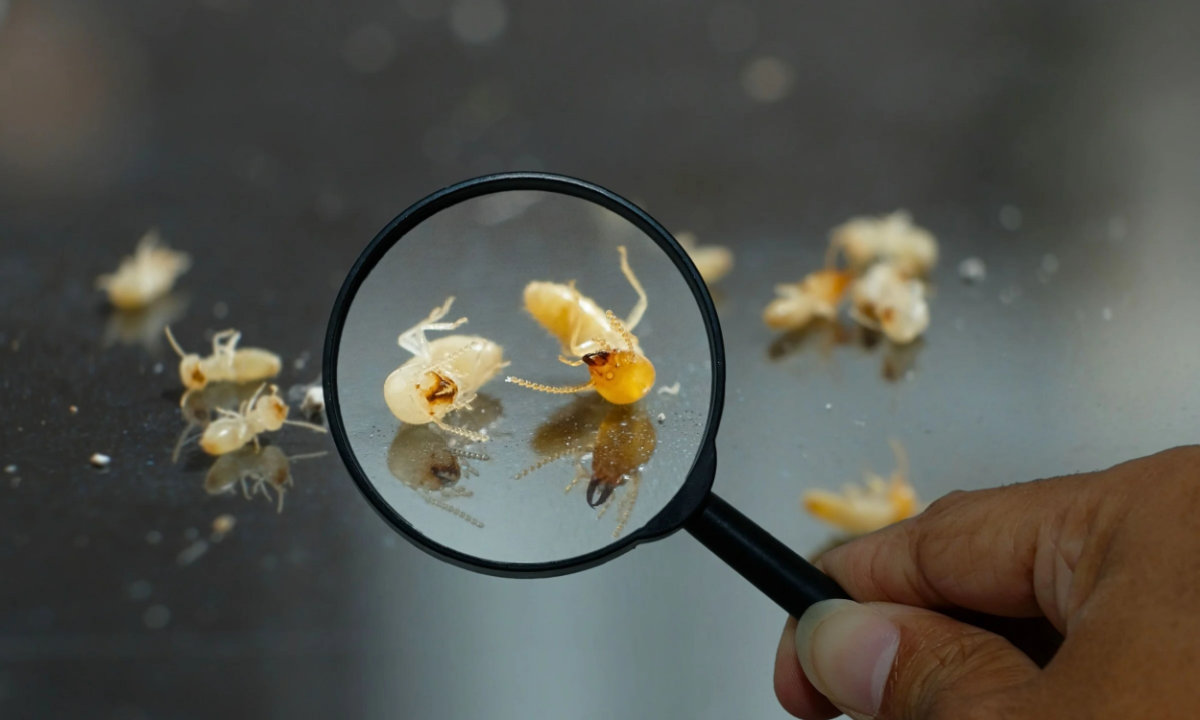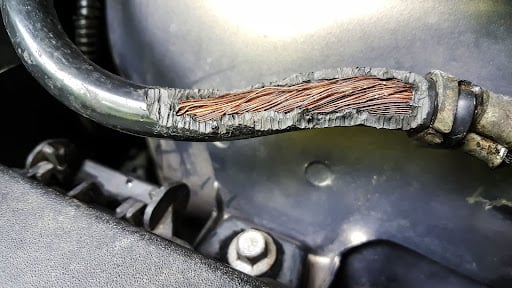Detecting bed bugs early in an outbreak is critical for managing a burgeoning infestation.
While traditional residential and commercial bed bug inspections are reliable, sometimes it takes the help of an expert to find bed bugs in places humans wouldn’t normally look.
We’re all familiar with the power of Fido’s nose, but did you know that man’s best friend may also be his best defense against bed bugs?
This guide will eliminate any doubts you may have about canine bed bug inspections and illustrate just how accurate they are.Request a Free, No-Obligation Quote
Request a Free, No-Obligation Quote
When to Call an Exterminator: Signs You Have Bed Bugs
Before hiring an exterminator to inspect your property, there will be a few telltale signs of bed bugs to look out for:
- Itchy welts or bite marks on the skin
- Brown smear marks on sheets and bedding
- A must odor that permeates throughout the room
- Exoskeletons left behind on furniture and bedding
Once you decide to call an exterminator, they will determine whether or not a canine inspection is required based on how bad the infestation truly is.
How Do Canine Bed Bug Inspections Work?
Dogs have an incredible sense of smell, and certain breeds, such as Beagles and German Shepherds, are particularly adept at detecting scents. Trained bed bug detection dogs undergo rigorous training to identify the unique odor emitted by bed bugs.
During an inspection, the handler guides the dog through the areas of concern, such as bedrooms, living rooms, and furniture. The dog sniffs for the distinct scent of bed bugs and signals when they detect it. The handler interprets the dog’s behavior–typically a specific posture or reaction–to pinpoint the infested areas. This method allows for a quick and accurate assessment of whether bed bugs are present.Request a Free, No-Obligation Quote
Request a Free, No-Obligation Quote
Benefits of Canine Inspections
Canine inspections are often advantageous because they can precisely pinpoint exactly where bed bugs are hiding in your house. This means finding bed bugs in unexpected hiding places, such as wall cavities, electrical outlets, and more.
Canine bed bug inspections are also considered more accurate, giving you more bang for your buck.
Canine Bed Bug Inspection Accuracy
Studies have shown that well-trained bed bug detection dogs can achieve a high level of accuracy. In fact, they often outperform human visual inspections and even certain electronic devices designed for bed bug detection.
How to Prepare Your House for a Canine Inspection
If you and your exterminator decide that a canine bed bug inspection is right for your home, here are some things you can do to prepare for the inspection:
- Clean and Declutter: A tidy environment makes it easier for the dog to navigate and detect bed bugs. Remove excess clutter and vacuum thoroughly.
- Eliminate Potential Distractions: Minimize odors that could distract the dog during the inspection. Avoid using strong cleaning products or air fresheners in the areas to be inspected.
- Cooperate with the Handler: Follow the instructions of the handler during the inspection. They may ask you to move furniture or create a clear path for the dog to navigate.
- Inform the Handler of Concerns: If you’ve noticed specific areas of concern, such as recent travels or purchases of used furniture, inform the handler. This information can guide the inspection process.
Canine bed bug inspections represent a cutting-edge and highly effective method for detecting these troublesome pests. The combination of a dog’s olfactory prowess and a skilled handler’s interpretation makes this approach reliable and efficient. Early detection is key to preventing a minor bed bug issue and getting rid of bed bugs quickly.
FAQs
1. How accurate are canine bed bug inspections?
Canine bed bug inspections are known for their high accuracy. Well-trained dogs can detect bed bugs even in the early stages and in locations that may be challenging for human inspections.
2. Are there specific breeds used for bed bug detection?
While various breeds can be trained for bed bug detection, Beagles and German Shepherds are commonly used due to their strong sense of smell and trainable nature.
3. Can canine inspections replace traditional methods?
Canine inspections are a valuable addition to traditional methods and often outperform human visual inspections. However, a comprehensive pest control strategy may include a combination of approaches.
4. How long does a canine bed bug inspection take?
The duration of an inspection depends on the size of the property and the extent of the areas to be inspected. In general, canine inspections are efficient and can provide quick results.
5. Is there a risk of false positives with canine inspections?
While rare, false positives can occur. It’s essential to follow proper preparation guidelines and communicate any relevant information to the handler to enhance accuracy.Request a Free, No-Obligation Quote


